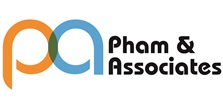
Keyword advertising trademark infringement
In the past, there was a famous case in European Union between Google France SARL and Louis Vuitton Malletier SA that published on a number of local newspapers e.g. IPKAT; Legal Bytes or The Guardian. At that time, a question was raised that an advertiser could be liable for trademark infringement by buying others’ trademarks as keywords?
Background
The plaintiff: Louis Vuitton, a manufacturer of luxury goods.
The defendant: Google operates a free internet search engine that displays a list of “natural” results - in response to search terms, or “keywords,” entered by internet users. Google supports its free search engine with income from AdWords, its paid referencing service. AdWords displays advertisements in fields near the natural results under a heading of “sponsored links”. Advertisers pay Google a fee for each internet user who clicks a website link on their advertisement.
Louis Vuitton discovered that Google displayed advertisements of websites selling imitation products when internet users entered Louis Vuitton’s trademarks as keywords. Louis Vuitton brought suit against Google in a French regional court, seeking a declaration that Google had infringed its trademarks. Then, Google appealed to the Court of Justice of the European Union (‘CJEU’).
Search engines’ liability?
In consideration of the uses that raise a likelihood of confusion undermine the “essential function.” CJEU analyzed the AdWords as two separate uses:
i) when Google allowed advertisers to select keywords initially; and
ii) when Google displayed advertisements in response to keywords entered by internet users.
However, only the display of advertisements must relate to goods or services “identical or similar” to ones covered by the trademark because only at that stage was a link established between the trademarked keywords and goods that were “identical or similar” to Louis Vuitton’s products.
CJEU held that the display of advertisements in this circumstance was not sufficient to undermine the essential function of trademarks - to guarantee the origin of goods - because it did not lead to confusion.
Further, although Google was obtaining a benefit from this activity. It was actually not directly “using” the trademark that it merely provided a platform for such use. Hence, it could not be found liable.
Advertisers’ liability?
Advertisers targeting European Union customers may constitute a trademark infringement if they purchase a third parties’ trademarked keyword and the use of that trademark may be four-prong test for infringement:
First, the use of a trademark must lack the proprietor’s consent.
Second, the use must happen in the “course of trade”.
Third, the use must relate to goods or services “identical or similar” to ones covered by the trademark.
Fourth, the use must affect or be liable to affect the functions of the trademark.
Finally, when determining whether a likelihood of confusion existed, the court would be required to look at the context of the use of the sign. Some similar cases for further studies were Interflora vs M&S, O2 vs Hutchison and Canon vs MGM.
Vietnamese Legislations stipulated the circumstance?
The above circumstance may be approached under the following laws:
- The Vietnamese Intellectual Property Law
- The Vietnamese Advertising Law
- The Vietnamese Information Technology Law
- The Vietnamese Law on E-transactions
- The Vietnamese Consumer Protection Law
This would be a difficult case and up to now there are no the same cases on this point.
Pham & Associates, (Adapted from the publications of The Harvard Law Review)


